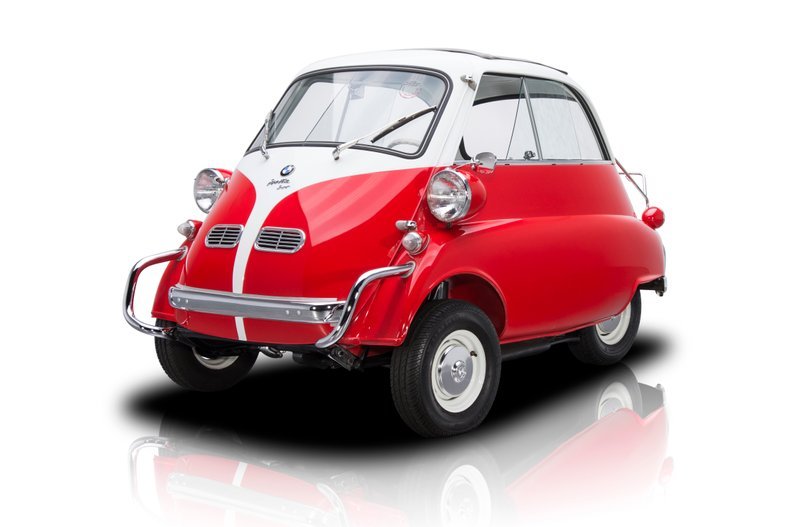Car Spotlight: BMW Isetta
At P1 Exotics, we want you to stay in the know and up to date, which is why we are introducing spotlights on our favorite cars in our inventory. The car we want to spotlight today is the BMW Isetta: the cutest most miniature car you can get. If you open up this BMW article, the brand declares the Isetta its “savior, icon, and every day hero”. Other fun names for the Isetta include ‘bubble car’ and ‘Knutschkugel’ (German for cuddle coach). Let’s dive a little deeper into the history of the Isetta.
BMW originally released the car to transition Germans from motorcycles to cars. The reason being that BMW was about to go bankrupt, and motorcycle production was declining; BMW had to think fast, and the Isetta was born. Germany was still rebuilding from World War II and the German people needed an affordable and maneuverable vehicle.
(Photo from BMW)
German law at the time allowed for users who had motorcycle licenses to drive cars if the car was small enough. The Isetta fit the bill, so Germans didn’t have to do any “extra work” to be able to drive the car. In redesigning the original Italian car model from Iso Rivolta, BMW made new specifications that allowed the Isetta to reach up to 53 mph (a speed that was fast at the time, and now would get you angrily honked at on the highway). Another difference between the German model versus the Italian model is that the Italian model only had three tires, while BMW added a fourth tire in their redesign.
Although it would now be classified as a micro mobility vehicle, the Isetta was considered a complete car when it was released in the 1950’s. Isettas come with a door in the front and have a single cylinder four stroke engine (compare that to six cylinder engines on cars today!). One thing we noticed on our very own red BMW Isetta is what seemed to be a mesh convertible roof. How convenient that you could remove it and pop your head out during long rides! We were wrong. The ‘convertible roof’ was actually a safety mandated emergency escape hatch that was required for cars that had a single front door.
After the success of the BMW Isetta 250 in 1955, BMW decided to release a higher performance model, the BMW Isetta 300, in 1966. The Isetta 300 had a 300 cc engine and 13 horsepower with four-speed manual transmission, but reached the same speed at the 250. Both cars feature a luggage rack outside of the car, because truly you are only going to fit a maximum of two people in these micro and oh so cute vehicles.
Of course, this story has a happy ending. The BMW brand was saved with the Isetta! 10,000 Isettas sold in their first year. Overall, 161,728 Isettas were sold until production stopped in 1962, and the car was even more successful in Germany overall than Italy. While the beloved car was missed, BMW decided to stop production because of an increase in standard of living. And, let’s be honest, this car isn’t exactly the ideal car for a family of four (or any family for that matter).
While in many ways the Isetta is forgotten, it is sure to live on in the hearts of BMW enthusiasts and the brand itself. Seeing a BMW Isetta in 2022 is almost guaranteed to turn heads. I would not be quick to dismiss the Isetta for its low maximum mileage and small frame. The rich history of the vehicle is something to note, and from a biased perspective, the Isetta simply just seems like a fun car to drive (it is fully street legal).
If you are interested in this vehicle, P1 Exotics is restoring its very own BMW Isetta. Please feel free to contact us for more information. Sarah Cierski from the P1 Exotics team also made an infographic of the Isetta which can be viewed below.
From the lovely Sarah Cierski from the P1 Exotics team






